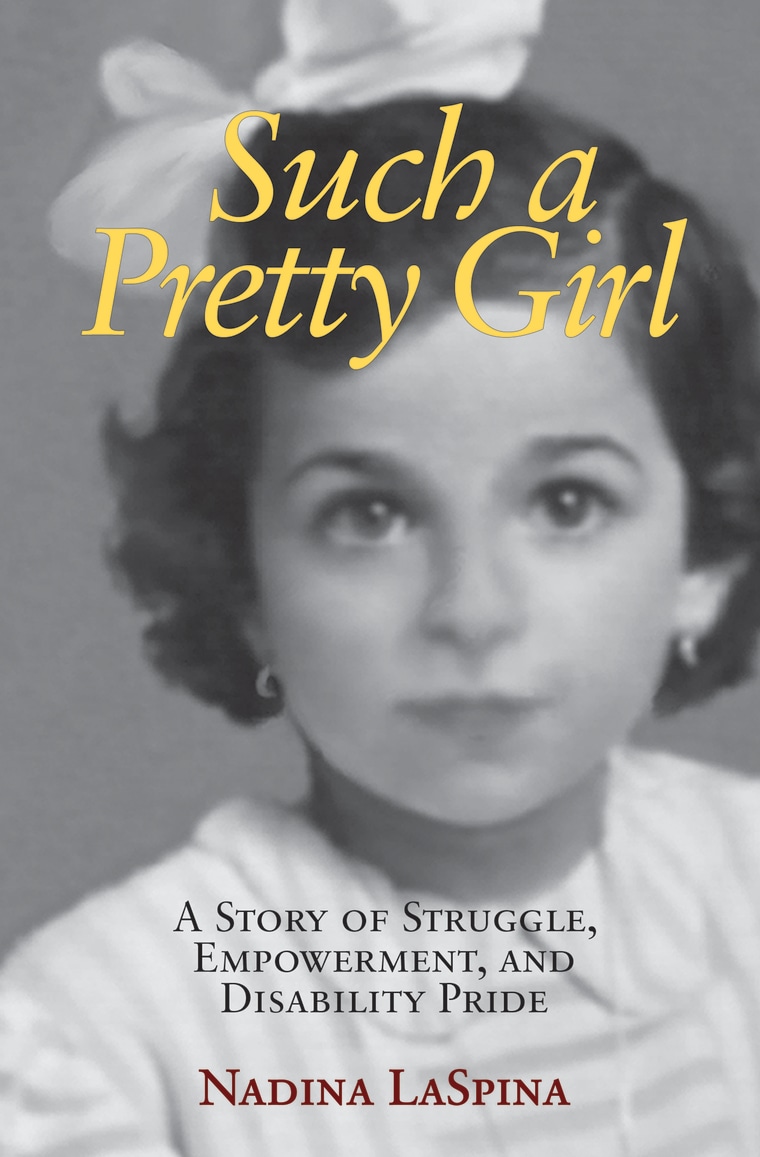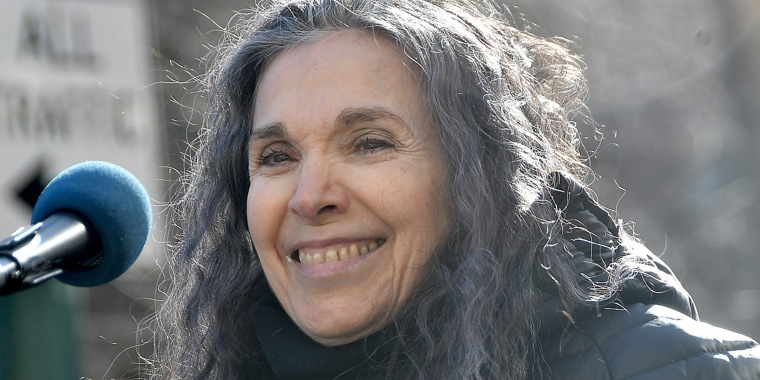As a baby, Nadina LaSpina contracted polio and couldn't walk following her illness. Years later, she had her legs amputated due to complications. Eventually, she and her family moved from Sicily to the United States, where she became a disability rights activist. She recently published her memoir, Such a Pretty Girl: A Story of Struggle, Empowerment and Disability Pride, and shared her thoughts with TODAY about things she wished people knew about living with a disability.
As a child, I often heard, “Such a pretty girl" and "What a shame.”
That pity always made me feel isolated and different. My mother would rush to explain that I was a healthy baby but that I later contracted polio. She didn’t want to be seen as responsible for my inability to walk, something many saw as a shortcoming.

Growing up in a fishing village in Sicily in the late 1940s and 1950s, I thought I was the only person in the world who couldn’t walk and play like other children. In fact, I only heard of others with disabilities when there was a telethon about them, where well-meaning celebrities would try to raise money for a cure.
But the general reaction in my village is an example of what many people with disabilities face — feelings of loneliness and pity. When we are isolated from others with disabilities and people feel sorry for us, it’s dehumanizing. It limits us and stops us from feeling as if we are part of society.
People with disabilities don’t want to feel pitied.
While people might feel as if it is natural to pity someone with a disability, this causes a lot of damage and leads to ableism, the idea that being without disability or limit is superior.
I don’t see my inability to walk as a problem. It is my inability to access certain spaces that makes life challenging.
It can make you feel as if you’re not good enough and your life doesn’t have any value. When able-bodied people pity people with disabilities, it makes us feel as if we are not welcome until there is a cure to fix us.
Many of us have illnesses or conditions that do not have a cure, but we are still capable of working, living in our communities, falling in love, raising families and everything else that able-bodied people do. I certainly meet a lot of people who think that people with disabilities are asexual and do not crave close romantic partnerships and that is completely untrue.
Pity can lead to the placement of people with disabilities into institutions. While this happened more commonly in the past — and disability rights advocates have fought against it — some people with disabilities still find themselves in institutions and in isolation.
My inability to walk is not the problem.
Just because a person has a disability doesn’t mean they can’t be a thriving member of society. Many people with disabilities have much to contribute to society and work, although it can be challenging. Programs that help people with disabilities pay for expensive medical supplies, such as wheelchairs, braces, oxygen or ongoing therapy, for example, are often awarded based on how little money a person has. That makes people choose between having access to much-needed care and having a fulfilling job.
I don’t see my inability to walk as a problem. It is my inability to access certain spaces that makes life challenging.
Take the New York City subway, which is in the city where I live. There are not enough wheelchair ramps or elevators in the subway system, which can make using public transportation a challenge and limit people with disabilities to certain spaces. The modern disability rights movement started when people with disabilities wanted more access to public transportation and while much has changed thanks to the Americans with Disabilities Act of 1990, it is still a work in progress.
People with disabilities are whole.
I hope people start seeing people with disabilities as whole people and not only as their disability. Some people meet me and just notice my wheelchair. People have tossed coins into my coffee cup as I enjoy the park or wait on the street because they see me as someone who needs charity. They can’t imagine that I've worked and built careers as an Italian language and literature professor at universities and as an activist.
I want to encourage people to look past disabilities and see people as individuals and not only at what limits them.
